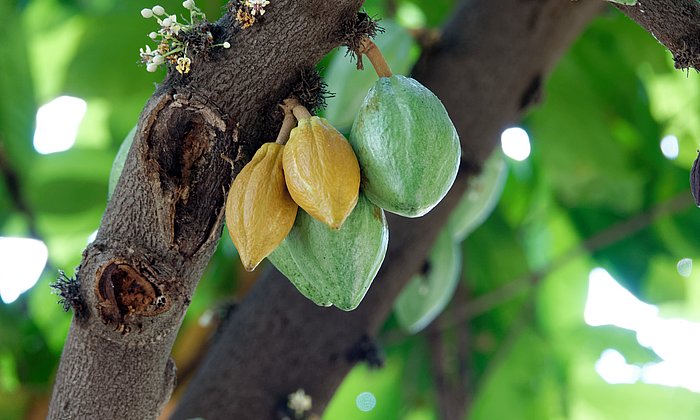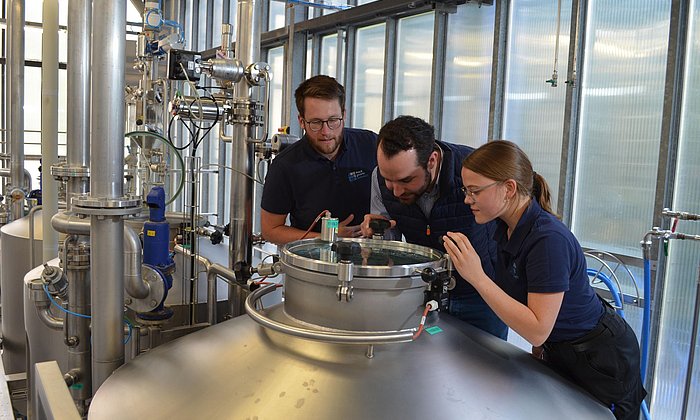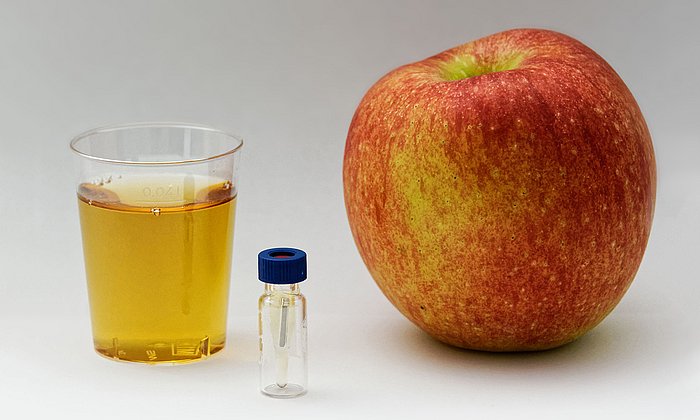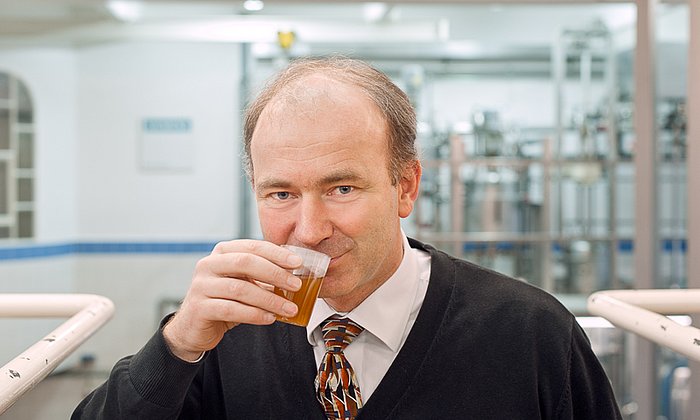Press releases
Study shows molecular profile of 19th-century beer sample
Scientific analysis of Germany’s oldest beer
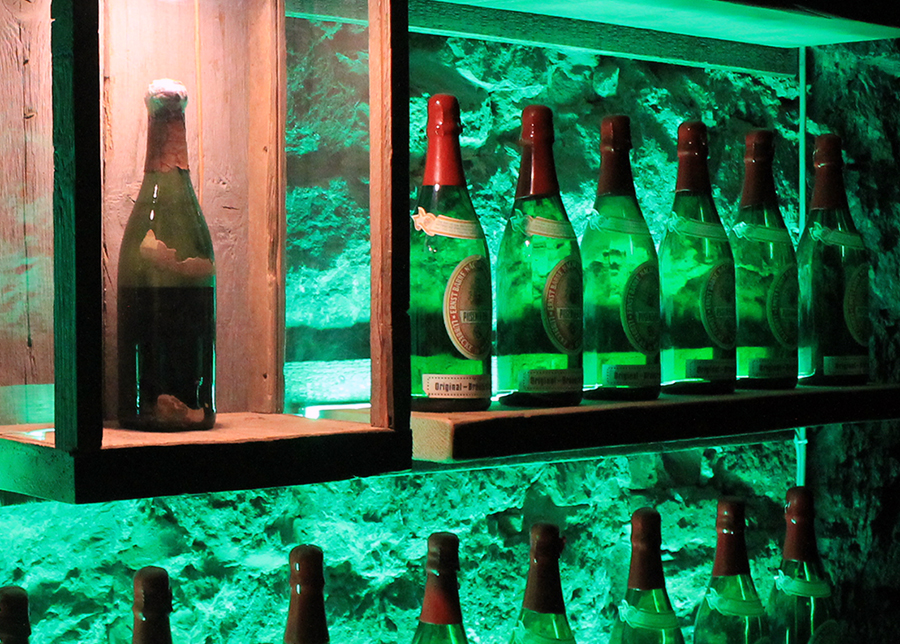
A historic beer from the days of the German Empire was recently found in North Germany. Its chemical composition offers unique insights into brewing culture in the late 19th century, a time when trailblazing innovations laid the foundation for industrial beer production. Researchers at TUM confirmed that the sample was stored in favorable conditions conducive to long preservation. The bottle, sealed with cork, wire and wax, was stored upright under atmospheric pressure in a commercial building.
Sensory analysis by four certified tasters showed a coherent and well-balanced beer with sherry, port and plum notes. “It was highly harmonious, both in terms of the overall impression and bitterness. In general it is a very lean, elegant and harmonious beer that still has an excellent taste and aroma,” says Dr. Martin Zarnkow, the head of technology and development at the Research Center Weihenstephan for Brewing and Food Quality.
Insights into the molecular composition
In collaboration with the Comprehensive Foodomics Platform headed by Prof. Philippe Schmitt-Kopplin at the Chair of Analytical Food Chemistry, the scientists analysed the molecular profile of the historical beer. The study shows that the signature of the historical beer, apart from strong oxidation of the hop components, is comparable to modern, industrially brewed products. The individual production steps of malting and brewing such as wort preparation, fermentation, filtration and storage leave demonstrable molecular traces.
After a comparison of the chemical signature of the sample against the molecular profiles of 400 modern beers from Germany and other countries, the researchers classified the beer as a typical pale lager. Distinguishing features of the analysis were the beer type, type of fermentation, compliance with the Purity Law, the type of grain and the signature of the Maillard reaction. The latter is essential for the aroma and color of the beer and was detected in a large concentration in the historical beer sample. As Dr. Martin Zarnkow explains, the comparison yielded “a database that now enables us to understand the technology behind a product. That’s something that we’ve been doing for a long time. But before this we were never able to place it on such a solid statistical foundation.”
The origins of modern industrial brewing
Through comparisons against historical and modern molecular profiles, the scientists arrived at conclusions on brewing methods in the 19th century. They discovered that the lager beer was brewed in a bottom fermentation process. This process, which prefers temperatures of just a few degrees above freezing, became practical on a year-round basis only with the invention of the “refrigeration apparatus” by Linde in the 1870s. The microbiological analysis revealed that the beer was filtered. This occurred in 1885, just a few years after the invention of the first filtration apparatus. A low concentration of lactic acid in the beer sample and the role of niacin as an indicator compound for insufficient germ removal provided the researchers with further insights into historical brewing.
In addition, they discovered that the beer, brewed in northern Germany, was produced in accordance with the Purity Law. This surprised Dr. Zarnkow because this was not yet required in that region in those days. “However, it was brewed according to the Purity Law and fully complied with the characteristics published at that time, apart from the color,” said Dr. Zarnkow.
Stefan A. Pieczonka, Martin Zarnkow, Philippe Diederich, Mathias Hutzler, Nadine Weber, Fritz Jacob, Michael Rychlik & Philippe Schmitt-Kopplin: Archeochemistry reveals the first steps into modern industrial brewing. In: Scientific Reports volume 12, Article number: 9251 (2022). DOI: 10.1038/s41598-022-12943-6
Technical University of Munich
Corporate Communications Center
- Dr. Katharina Baumeister
- presse@tum.de
- presse@tum.de
- Teamwebsite
Contacts to this article:
Dr. Martin Zarnkow
Technical University of Munich
Research Center Weihenstephan for Brewing and Food Quality
Head of Technology & Development
Phone: +49 8161 71-3530
Martin.Zarnkow@tum.de
Prof. Philippe Schmitt-Kopplin
Technical University of Munich
Comprehensive Foodomics at Chair of Analytical Food Chemistry
Phone: +49 (89) 3187 3246
schmitt-kopplin@tum.de
